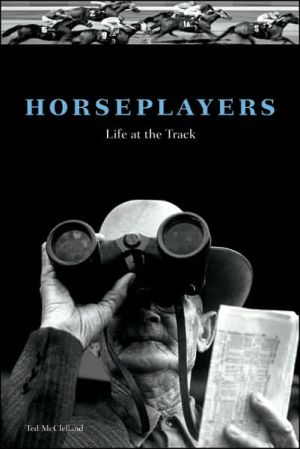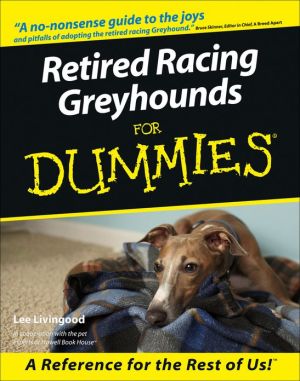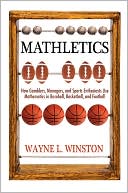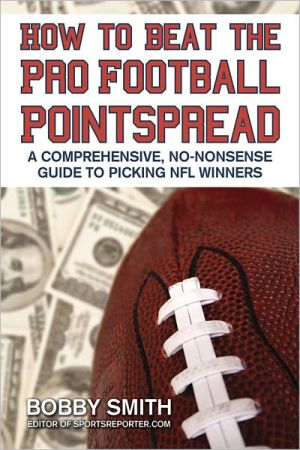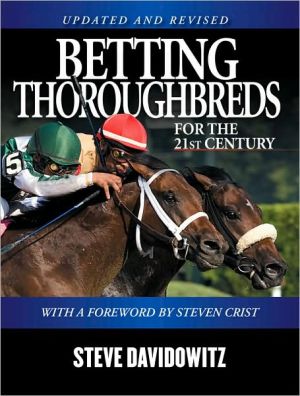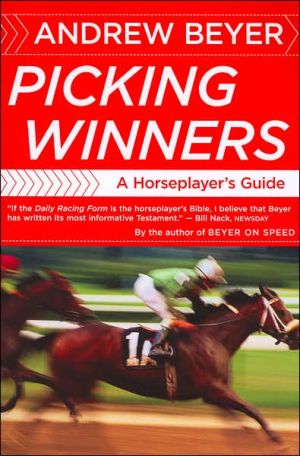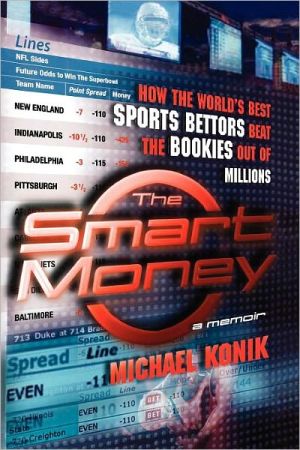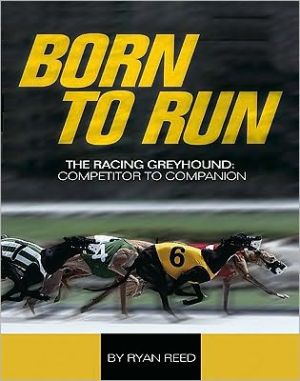Horseplayers: Life at the Track
Nearly $16 billion is wagered every year on Thoroughbred horses. But only 2 to 5 percent of horseplayers turn a consistent profit. Is it possible for a reasonably intelligent, normal guy to actually make a living at the racetrack? Ted McClelland takes us on a yearlong journey to find out.\ A wildly diverse cast of horseplayers kindly adopts McClelland and teaches him an array of techniques for playing the ponies. There's the intensely disciplined Scott "The Professor" McMannis, who uses a...
Search in google:
This fun and witty exposé of horse racing in America goes behind the scenes at the track, providing a serious gambler's-eye view of the action. Ted McClelland spent a year at tracks and off-track betting facilities in Chicago and across the country, profiling the people who make a career of gambling on horses. This account follows his personal journey of what it means to be a player as he gambles with his book advance using various betting and handicapping strategies along the way. A colorful cast of characters is introduced, including the intensely disciplined Scott McMannis, "The Professor," a onetime college instructor who now teaches a course in handicapping, and Mary Schoenfeldt, a former nun and gifted handicapper who donates all of her winnings to charity. This moving account of wins, losses, and personal turmoil provides a sobering look at gamblers, gambling, and life at the track. Library Journal McClelland, who writes a column on horse racing for the Chicago Reader, took a year off to learn about horse racing and gambling. Though he was introduced to the sport as a young boy by his father the reader can easily see that the author is an outsider trying to fathom the sport's inside secrets. Here he introduces us to all the regulars at Chicago's Hawthorne Race Course and Arlington Park and shows how horse racing can become more than a passion. In fact, it can become an addiction. This book will best be appreciated for its humor and insight even by those who have had little experience at the racetrack. It echoes the hilarious Thirty Tons a Day by baseball showman Bill Veeck, who made a glorious but futile attempt to master the world of horseracing.-Paul Kaplan, Lake Villa Dist. Lib., IL Copyright 2005 Reed Business Information.
AcknowledgmentsviiHow Gambling Saved My Life11The Blind Man and the Hustler152If Wishes Were Horses273Professor Speed494First Your Money, Then Your Clothes635170 Large876Derby Day957Travels with McChump1078The Rebel Enclave1319The Stat Man14710The Late Great Eight15511Omar and Lucky16912Men Betting Badly17714Eureka?19115'Seabiscuit' Jockey Nearly Trampled20316The Gold Club21117The Twenty-Five-Dollar Horse21718True Adventures in Gambling22319Bob the Brain's Big Score23920The One-Eyed Man Is King249A Racetrack Glossary257
\ Library JournalMcClelland, who writes a column on horse racing for the Chicago Reader, took a year off to learn about horse racing and gambling. Though he was introduced to the sport as a young boy by his father the reader can easily see that the author is an outsider trying to fathom the sport's inside secrets. Here he introduces us to all the regulars at Chicago's Hawthorne Race Course and Arlington Park and shows how horse racing can become more than a passion. In fact, it can become an addiction. This book will best be appreciated for its humor and insight even by those who have had little experience at the racetrack. It echoes the hilarious Thirty Tons a Day by baseball showman Bill Veeck, who made a glorious but futile attempt to master the world of horseracing.-Paul Kaplan, Lake Villa Dist. Lib., IL Copyright 2005 Reed Business Information.\ \ \ \ \ Kirkus ReviewsA Chicago journalist spends a lively year playing the ponies. You can make a life at the track, but you can't make a living," says McClelland, a columnist at the Chicago Reader, as he sets out to prove himself wrong. Spending ten months at Illinois tracks both seedy (Hawthorne) and bucolic (Arlington Park), he studies the art of wagering. He bets on maidens (horses that have never won), the chalk (the betting favorite) and suckers (horses that repeatedly finish second, leading bettors to believe the animal is due for a win). McClelland learns from personalities both inside and outside the paddock: there's curmudgeonly Creighton Schoenfeldt, a devotee of a handicapping program called All-Ways, which ranks every horse "according to its speed from the gate, its class, its workouts" and its finishing kicks. And there's mild-tempered Bob the Brain, who, in the late 1970s, was one of a group of horseplayers making a living wage at the track. (That streak ended in the early 1990s, when the Racing Form began publishing speed figures each day.) And there's also Omar Razvi, a cab driver and gambler who buys a filly named Sassiness with his winnings. After months of "betting like a eunuch," McClelland decides to go from tightfisted to two-fisted, and triumphs-for a time. He finally discovers the "secret" to winning. It isn't in predicting the horses' behavior, it's in predicting how other gamblers will bet, and exploiting their mistakes. Amusing, opinionated, rambling and filled with a dizzying array of handicapping formulas-in short, everything a horse-racing book should be.\ \
